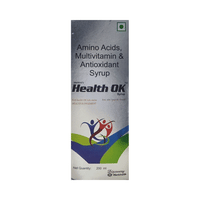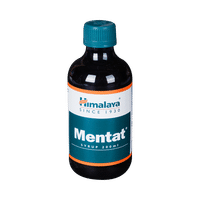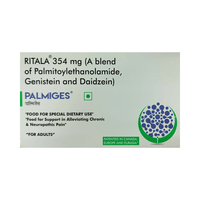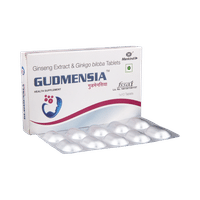Rs.149for 1 strip(s) (10 capsules each)
food interaction for Rosuless-C
alcohol interaction for Rosuless-C
pregnancy interaction for Rosuless-C
lactation interaction for Rosuless-C
food
alcohol
pregnancy
lactation
Rosuless-C 10 Capsule may be taken with or without food.
None
None
CAUTION
Alcohol should be used with caution while taking Rosuless-C 10 Capsule.
CAUTION
Rosuless-C 10 Capsule is highly unsafe during pregnancy. It can cause serious harm to the unborn baby, including birth defects and pregnancy loss. Do not use this medicine if you are pregnant or planning to become pregnant.
UNSAFE
Rosuless-C 10 Capsule may be unsafe to use during breastfeeding. Limited human data suggests that the drug may pass into the breastmilk and harm the baby. It should be used only if the expected benefit outweighs the potential risk. Please consult your doctor.
CONSULT YOUR DOCTOR
SALT INFORMATION FOR Rosuless-C
Rosuvastatin(10mg)
Uses
Rosuvastatin is used in the treatment of high cholesterol, high triglycerides and prevention of heart attack and stroke.
How it works
Rosuvastatin is a lipid-lowering medication (statin). It works by blocking an enzyme (HMG-CoA-reductase) that is required by the body to make cholesterol, thereby lowering "bad" cholesterol (LDL) and triglycerides and raising "good" cholesterol (HDL).
Common side effects
Muscle pain, Weakness, Headache, Abdominal pain, Dizziness, Joint pain, Nausea, Rash, Itching, Protein in urine, Anaphylactic reaction, Low blood platelets, Muscle damage, Rhabdomyolysis, Increased transaminase level in blood, Blood in urine, Jaundice, Systemic lupus erythematosus
Clopidogrel(75mg)
Uses
Clopidogrel is used for heart attack, peripheral vascular disease, unstable angina and prevention of heart attack and stroke. It decreases the chances of having another heart attack or stroke in people at high risk of heart disease.
How it works
Clopidogrel is an antiplatelet medication. It works by preventing platelets from sticking together, thereby decreasing the formation of harmful blood clots. This lowers the chance of heart attack or stroke.
Common side effects
Abdominal pain, Stomach inflammation, Constipation, Skin rash, Blood in urine, Thrombotic thrombocytopenic purpura, Decreased blood cells (red cells, white cells, and platelets), Agranulocytosis (deficiency of granulocytes in the blood), Acquired hemophilia A, Vasculitis, Hypotension (low blood pressure), Aplastic anemia, Hypoglycemia (low blood glucose level), Hemorrhage, Vomiting, Nausea, Headache, Bruise, Dizziness, Diarrhea, Hematoma, Nosebleeds, Gastrointestinal bleeding, Dyspepsia, Low blood platelets, Intracranial bleeding, Stomach ulcer, Duodenal ulcer, Anaphylactic reaction
SUBSTITUTES FOR Rosuless-C
174 Substitutes
174 Substitutes
Sorted By
 Rs. 284.53pay 91% more per Capsule
Rs. 284.53pay 91% more per Capsule Rs. 234.10pay 42% more per Capsule
Rs. 234.10pay 42% more per Capsule Rs. 339.23pay 123% more per Capsule
Rs. 339.23pay 123% more per Capsule Rs. 232.50pay 53% more per Capsule
Rs. 232.50pay 53% more per Capsule Rs. 191.20pay 28% more per Capsule
Rs. 191.20pay 28% more per Capsule
Expert advice FOR Rosuless-C
- Rosuvastatin treats high cholesterol by lowering "bad" cholesterol (LDL) and triglycerides (fats). It should be taken in addition to regular exercise and low-fat diet.
- In general, Rosuvastatin is safe. It may cause diarrhea, gas or an upset stomach. If any of these happen to you, take it with food.
- Inform your doctor if you experience fatigue, muscle weakness or muscle pain.
- Your doctor may check your liver function before starting the treatment and regularly thereafter. Inform your doctor if you notice signs of liver problems such as stomach pains, unusually dark urine or yellowing of skin or eyes.
- Inform your doctor if you have kidney disease, liver disease or diabetes before starting treatment with this medicine. If you are diabetic, monitor your blood sugar level regularly as Rosuvastatin may cause an increase in your blood sugar level.
- Do not take Rosuvastatin if you are pregnant, planning a pregnancy or breastfeeding.
- Rosuvastatin treats high cholesterol by lowering "bad" cholesterol (LDL) and triglycerides (fats). It should be taken in addition to regular exercise and low-fat diet.
- It also reduces the risk of heart attack and stroke.
- In general, Rosuvastatin is safe. It may cause diarrhea, gas or an upset stomach. If any of these happen to you, take it with food.
- Inform your doctor if you experience fatigue, muscle weakness or muscle pain.
- Your doctor may check your liver function before starting the treatment and regularly thereafter. Inform your doctor if you notice signs of liver problems such as stomach pains, unusually dark urine or yellowing of skin or eyes.
- Inform your doctor if you have kidney disease, liver disease or diabetes before starting treatment with this medicine. If you are diabetic, monitor your blood sugar level regularly as Rosuvastatin may cause an increase in your blood sugar level.
- Do not take Rosuvastatin if you are pregnant, planning a pregnancy or breastfeeding.
Frequently asked questions FOR Rosuless-C
Rosuvastatin
Q. For how long should I take Rosuvastatin?
You may need to take Rosuvastatin for life or for as long as directed by your doctor. The cholesterol levels will be maintained only till you are taking Rosuvastatin. Stopping Rosuvastatin without starting a different treatment may increase your cholesterol levels again. This medicine has only a few side effects and is usually considered safe if taken as directed by the doctor.
Q. Does Rosuvastatin cause weight gain?
No, there is no evidence of Rosuvastatin causing weight gain. If you are taking Rosuvastatin and gaining weight, consult your doctor. The doctor may get some investigations done to know the reason for the weight gain.
Q. Does Rosuvastatin make you tired?
Yes, Rosuvastatin can make you feel tired. This is because it reduces the energy supply to the muscles in the body. However, the exact reason behind the phenomenon is unknown and needs more research. Tiredness usually occurs after exertion. Generalized fatigue is more often in people with heart disease or those suffering from liver illness. Rosuvastatin also causes muscle damage which further worsens the tiredness. Therefore, you must consult your doctor if you feel tired while taking Rosuvastatin.
Clopidogrel
Q. What is Clopidogrel used for?
Clopidogrel is used to prevent formation of blood clots, thus reducing the risk of heart attacks or stroke. It facilitates smooth circulation of blood in the body by reducing the ability of the platelets to stick together, that could otherwise lead to formation of harmful clots in hardened blood vessels.
Q. Is Clopidogrel a blood thinner?
Yes, Clopidogrel is an antiplatelet medicine which is also known as a blood thinner. It makes your blood flow more easily through your blood vessels and prevents formation of harmful blood clots. This lowers your chances of heart attack or stroke.
Q. When should you take Clopidogrel?
You should take Clopidogrel exactly as prescribed by the doctor. You can take it with or without food, at any time of the day. However, it is important to take it regularly at the same time each day for best results. This will also help you to remember to take it daily.























